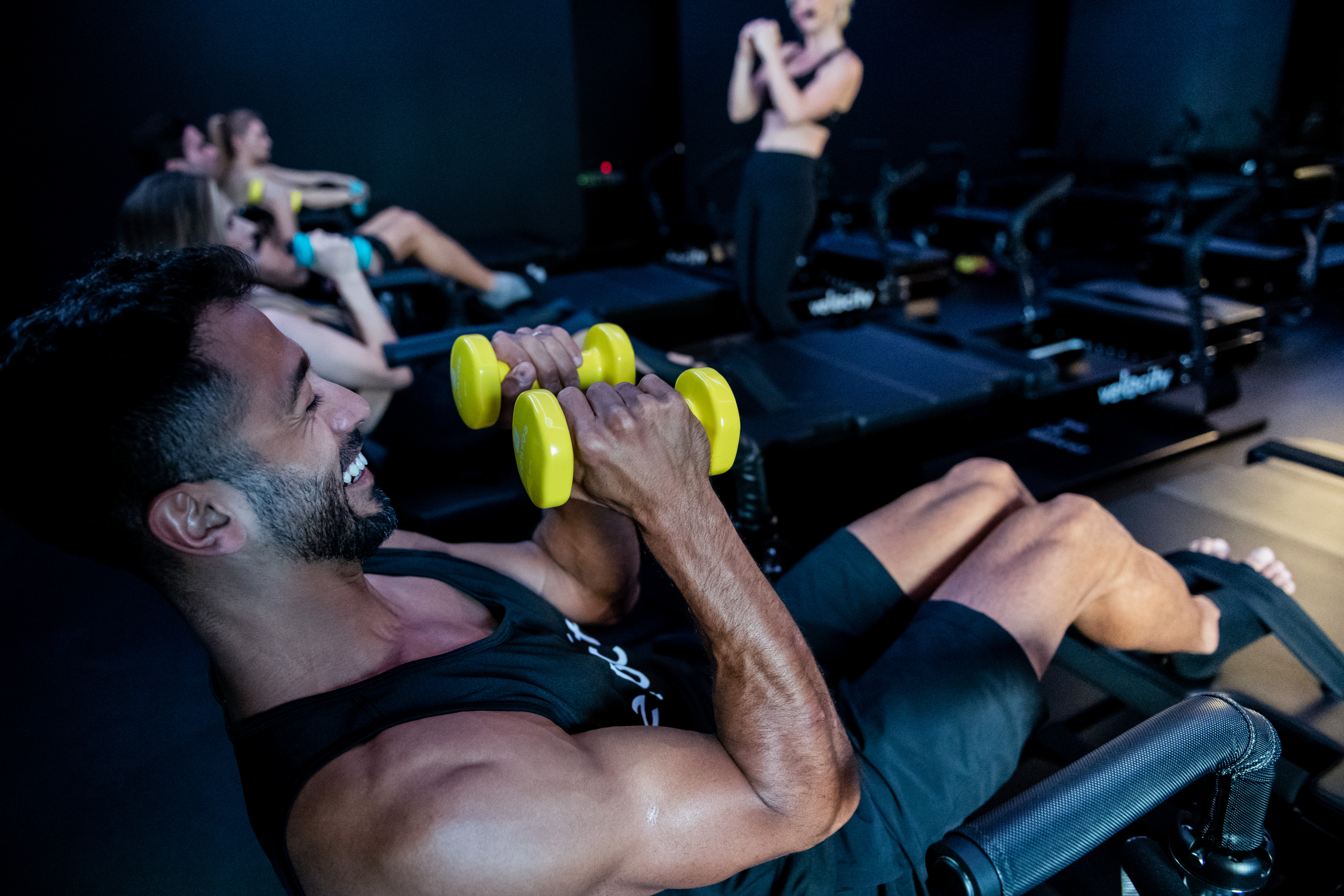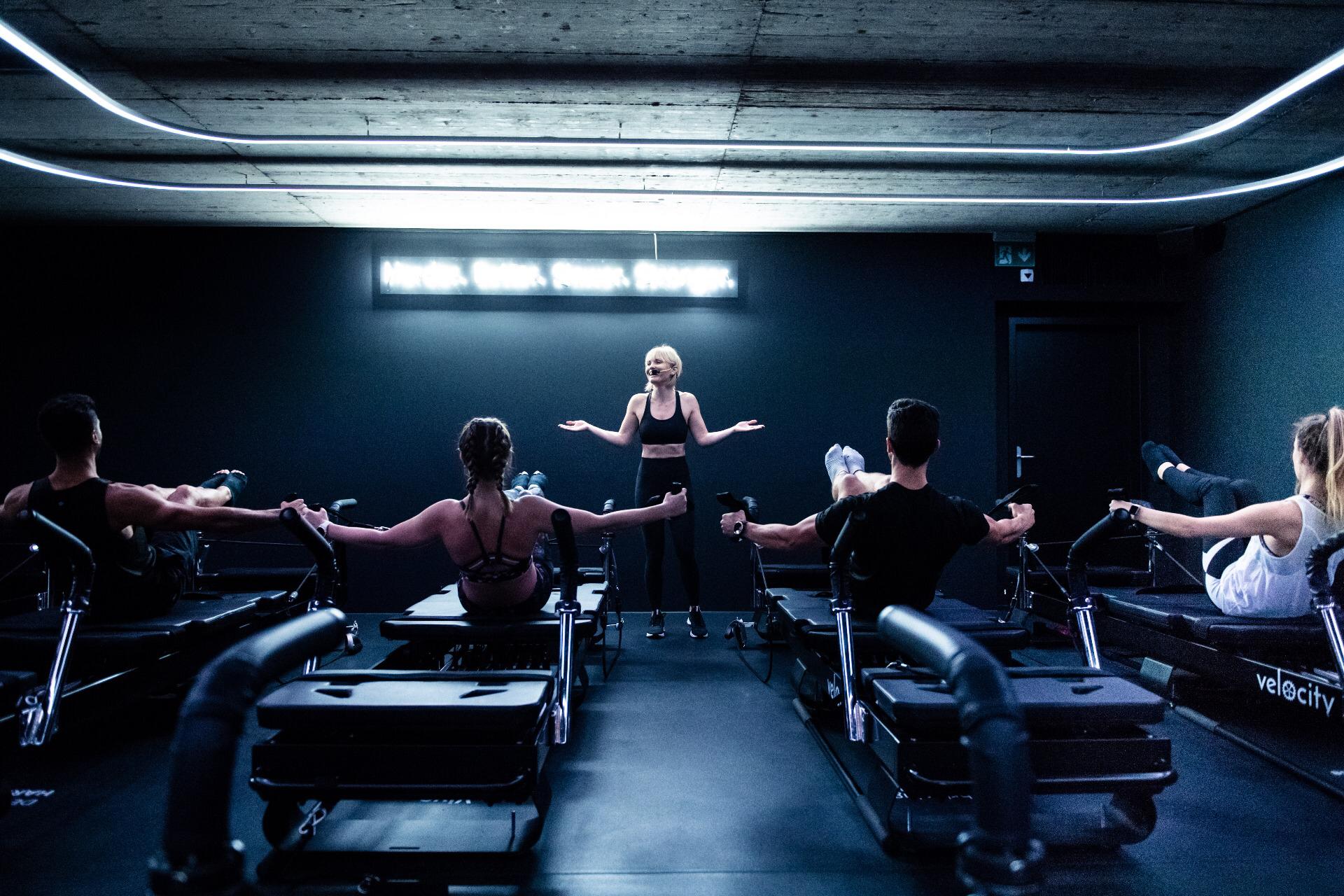Cardio vs. Strength Training — Which One Wins?
by Cameron – Friday, 31. January 2020
I can’t be the only one who wishes they had more than 24 hours in a day. There is very little free space to fill in between work, traffic, chores, cooking, kids activities, studying, and sleep. It seems like daily to-do lists are a personal Medusa, where you cross one thing off the list, and two more tasks appear. So for those who prioritise their health and exercise the big question is how to make the most of your time. Our goal is to break through the pseudoscience regarding cardio and strength training and stick to the facts to help you make decisions about where you want to put your time and effort based on your personal goals.

Weight Loss
Weight loss, and most importantly fat loss, is the goal of many of us who exercise regularly. It simply requires that our caloric intake is less than our caloric expenditure, which we call a caloric deficit. This doesn’t mean that you need to spend hours in the gym, it simply means a few days of cardio and strength training and creating a balanced nutrition plan.
Cardio burns more calories per session, where a person weighing 73kg and performing 30 minutes of moderate exercise will burn 250 calories, or 365 calories at a more intense pace. Meanwhile weight training only allows you to burn about 130-220 calories during the same period. This is not to say strength training shouldn’t be utilised for weight loss. There are a lot benefits to including it in your regimen. It can provide long term increases to your resting metabolism, meaning you burn more doing nothing! Unfortunately adding muscle will only have minor effects on these levels. However, you will experience higher resting metabolism levels in the hours after a strength training session compared to the time after a cardio workout.
If you can’t spare 30 minutes of your day, it’s not a problem! There are solutions for that. In strength training, decreasing the rest time between sets to 30 seconds will actually increase your overall caloric expenditure. While it may inhibit your muscle recovery and growth, the tradeoff is that it will help with your weight loss goals. HIIT (High Intensity Interval Training) is another option. It is a cardio workout that integrates periods of intense exercise with periods of rest, varying your heart rate. It’s been found in some studies that participants burned as many calories as moderate cardio in a shorter time.

Stress Reduction
Strength training may indeed help reduce stress levels, but there is not enough evidence to say there is causal evidence. Until they work out the intensity, frequency, and duration standards, we can only say that cardio is directly linked to elevated serotonin levels. Serotonin is a neurotransmitter is that is essential to improving mood and reducing symptoms of depression. 3-5 days of week of only 15 minutes of aerobic activity can cut fatigue 50%. Cardio wins this round by default.
Lowering Injury Risk
The best way to keep improving in the gym is to, well, stay in the gym. The human body can feel like it betrays us all too often, and injuries happen to everyone. I’ve certainly felt like a baby giraffe wobbling around through new exercises, and when I’m not careful or overstrain myself that’s when accidents happen. Although there are low impact activities like cycling and swimming, any form of repetitive motion that you do in cardio is going to put strain on your joints, ligaments, tendons, muscles, and even cartilage. Your risk of injury is high during cardio with all of the stress put on your body. Strength training can help you from being sidelined by using pliability, balance, and resistance exercises to improve your mind body connection.

Tim McGuine, Ph.D., senior athletic trainer and research coordinator at the University of Wisconsin-Madison elaborates that, “Functional strength training teaches your brain to allow muscle contractions that are quick enough to prevent or minimize injuries.” When you are deficient in strength, especially in your legs and core, your brain sends signals to overcompensate and put more strain into the stronger areas of your body. Stay off crutches and limit your hamstring pulls through effective strength training, and you will see a boost in your cardio exercises while minimizing injury.
Long-Term Health Benefits
One of the most well-known benefits of fitness is improving your long-term health outlook. Cardio can reduce not only obesity, but your risk of heart diseases, high blood pressure, diabetes, stroke, and in some studies, types of cancer. Cardio’s most important function is improving your cardiovascular system of course! Aerobic activity helps oxygen circulate more efficiently, allows more blood to reach the heart, and decreases the inflammation around the vital organ. Strength also has its benefits, as it can prevent you from gaining intra-abdominal fat, which restricts blood vessels and wraps around organs.
In Summary
When choosing between cardio and strength training, the answer is where it usually is, somewhere in the middle. You should engage in both types of training throughout your week to not only maximize benefits to your health, but to keep from being fatigued and bored with repetition. Strength training assists your cardio workouts and vice versa. Finding a healthy balance between the two and fitting it into your busy life is the best way to make sure you’re here for a long time and feeling in control of the body you have. We only get one after all! So find the program that works best for you and stick with it. Overcoming the challenges and tribulations will feel all the better three months from now when you can see and feel the difference.
https://www.healthline.com/nutrition/cardio-vs-weights-for-weight-loss
https://www.polar.com/blog/cardio-vs-strength-training/
https://www.active.com/fitness/articles/cardio-vs-strength-training-which-one-is-most-effective



Meet the New Faces Behind Our Power Team
/in Health, Lifestyle, Living in Zug, Living in Zurich, Power/by Casey3 Ways to Push Through a Tough Workout
/in Health, Lifestyle, Living in Zug, Living in Zurich, Power, Rides/by Casey